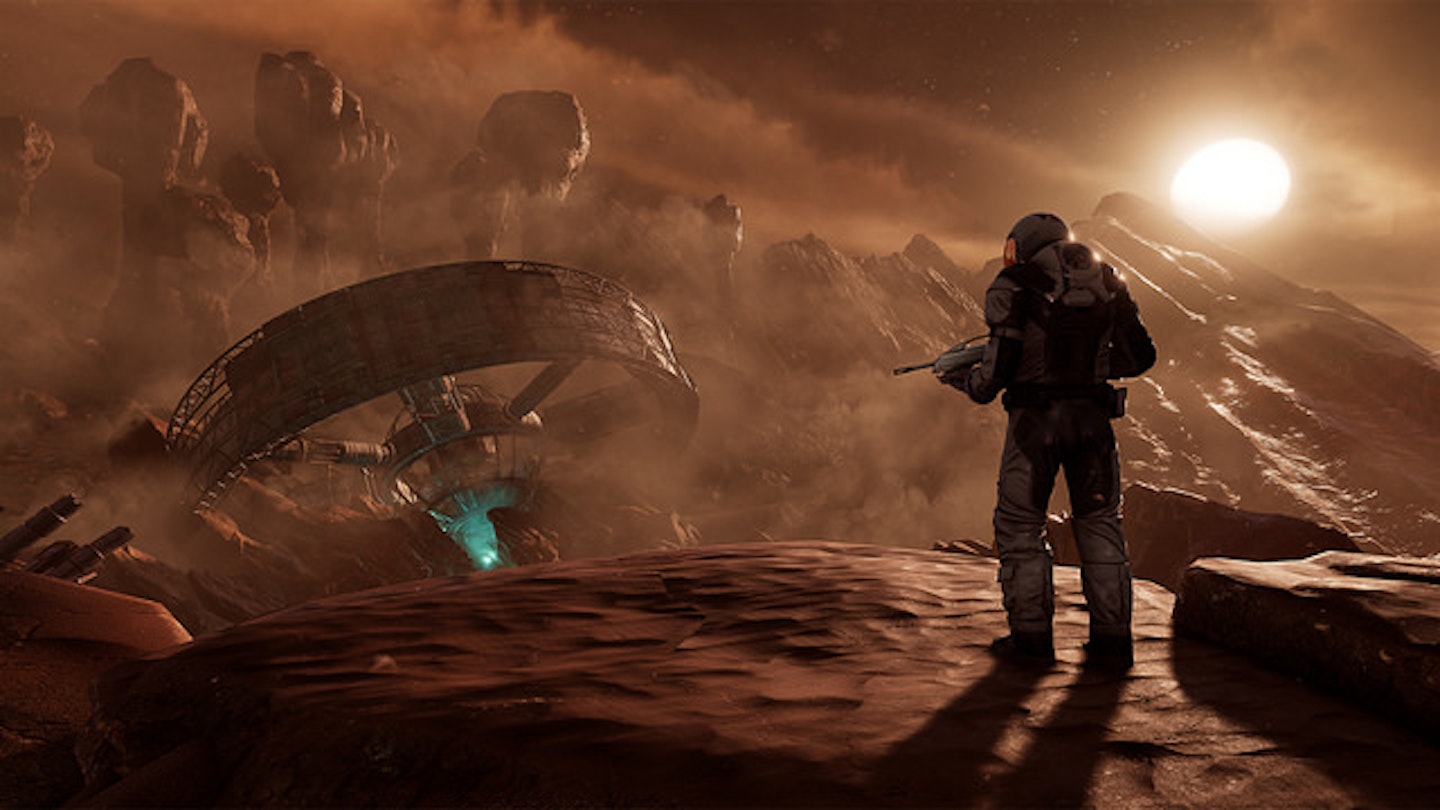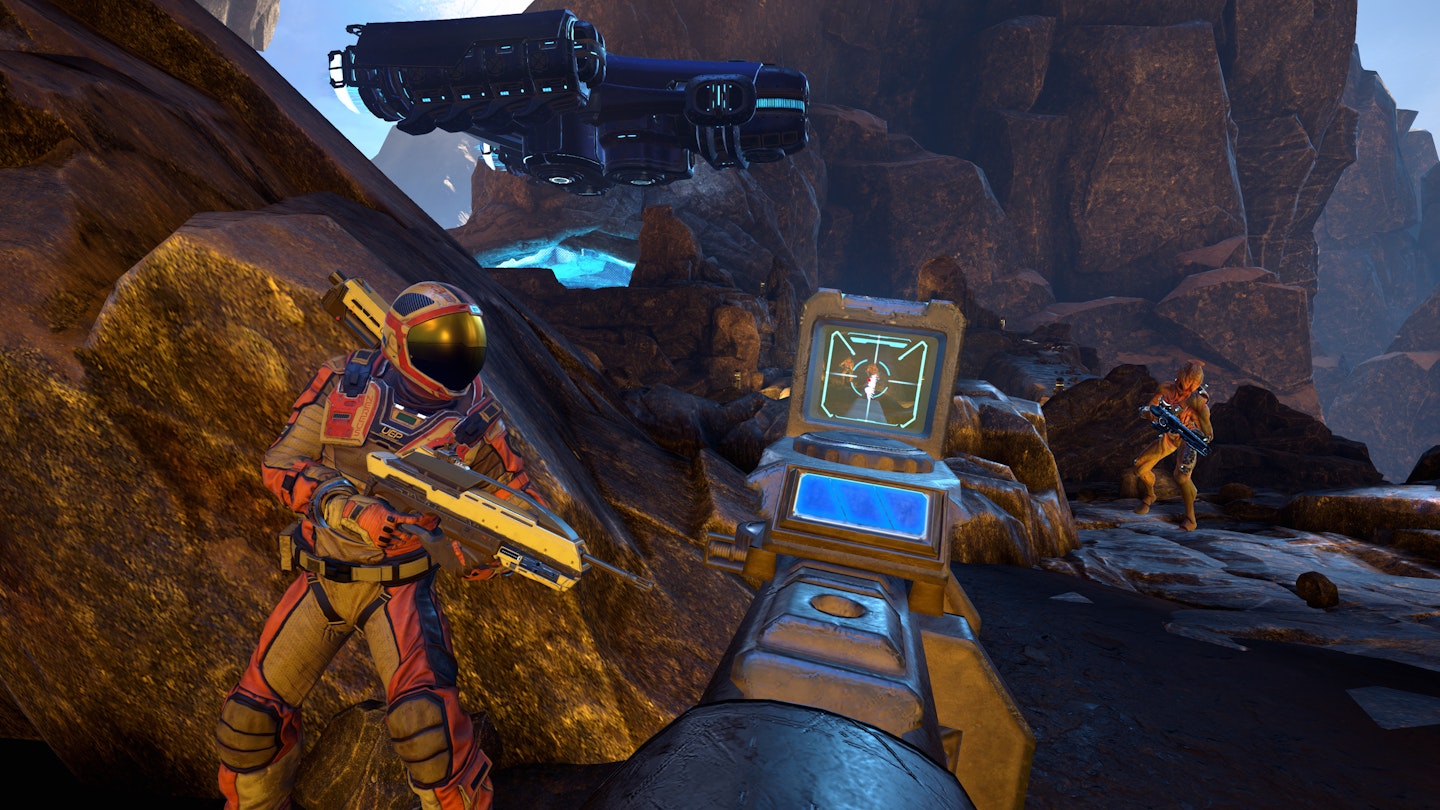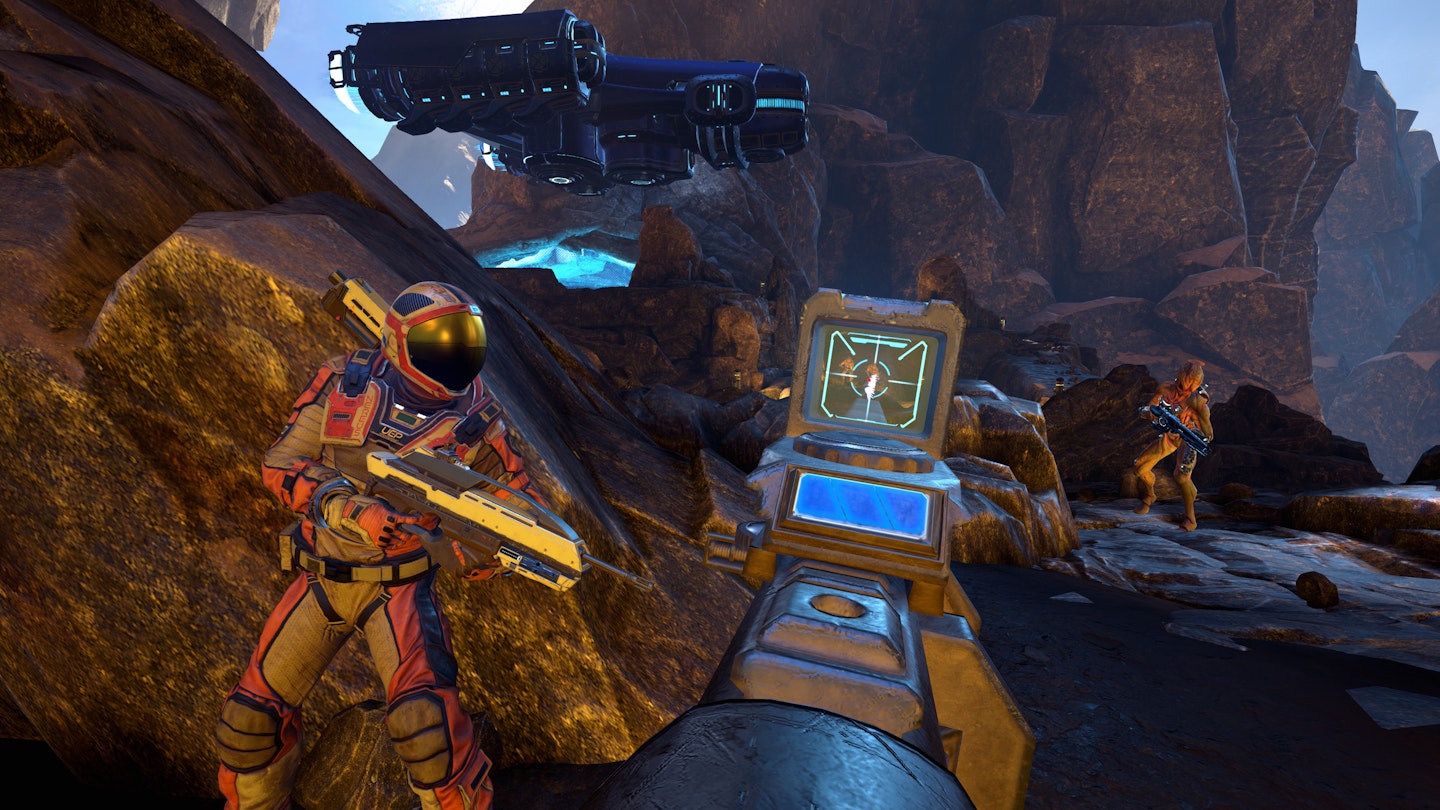A little more than six months after release, and with big name releases becoming noticeably (and worryingly) scarce, this release is exactly what PlayStation VR needed. Not the game, a sci-fi shooter on a mostly brown planet, but the controller — the rifle-shaped PSVR Aim that adds another level of realism not previously available. Now I have a machine gun, ho, ho, ho.

Everything you need is on it — a Move controller-style light-up rubber ball is attached to the end of the barrel allowing it to be tracked accurately, a thumb-stick lets you move, and, as well as the trigger, there are two buttons that here used to activate your secondary weapon and a scanner respectively. It’s an impressive piece of kit that will hopefully increase the number of big-name titles that integrate VR properly.
But what of Farpoint, the controller’s launch title? Crash landing on an alien planet, you’re alone — separated from the two scientists who were dragged into the same energy anomaly you were. There you follow their hologrammatic recordings, while dispatching the various alien beasts that call the planet home.

The story can be completed in six hours or so.
The game itself is a fairly standard FPS — you’re on a planet with vistas that stretch to infinity, but it’s not somewhere you’re given the chance to explore beyond the pre-ordained path. Instead you’re funnelled towards your goal by steep slopes and sharp drops. There are impressive sights to be seen — most obviously a volcano with ash billowing out of it — but it’s still a corridor shooter. It’s not that long either — the story can be completed in six hours or so. Put this on a flat screen and it wouldn’t attract much attention.
But the key is, of course, that it isn’t on a flat screen. And when you’re immersed in a 3D world, dated mechanics pale in comparison with the spectacle of it all. Better VR shooters will come along, and better experiences with the Aim controller. This is not PSVR’s version of the first Xbox’s Halo — a game that will launch a franchise and still hold up in years to come. But right now, it’s a blast. And sometimes that’s enough.
